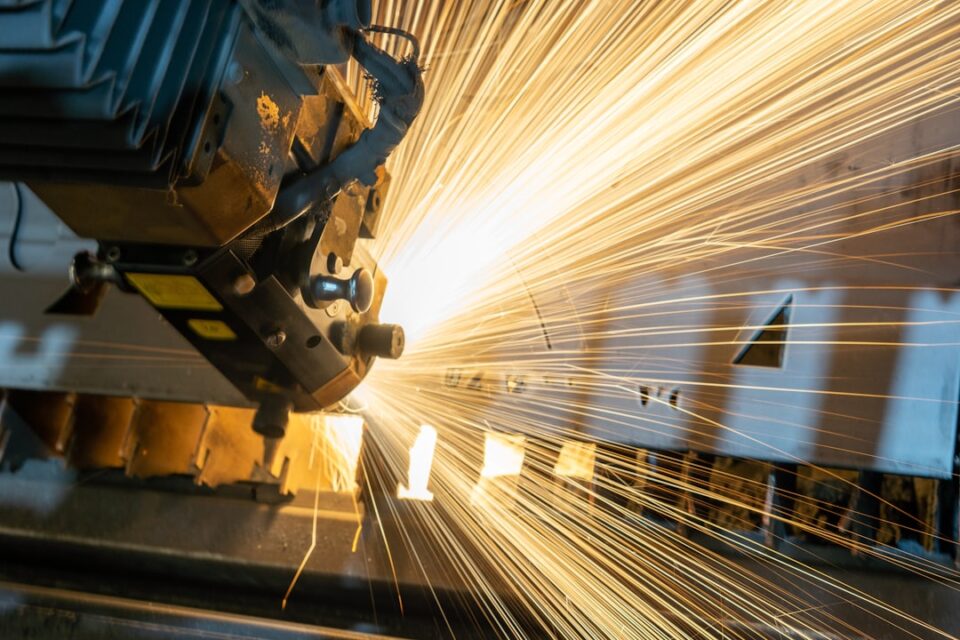In today’s fast-paced and ever-evolving world, technology plays a crucial role in the success and competitiveness of every industry. The manufacturing sector is no exception, as it continues to embrace the digital transformation and the concept of Industry 4.0. This new industrial revolution is characterized by the integration of advanced technologies such as artificial intelligence, the Internet of Things (IoT), big data analytics, robotics, and cloud computing into the manufacturing processes.
Embracing Industry 4.0 in manufacturing is not just a trend, but a necessity for companies to stay competitive and agile in a rapidly changing market landscape. By leveraging the latest technologies, manufacturers can improve efficiency, increase productivity, reduce costs, and deliver higher-quality products to their customers.
One of the key aspects of Industry 4.0 is the concept of the smart factory, where machines, systems, and processes are interconnected and communicate with each other in real-time. This allows for greater automation and control over the manufacturing process, leading to increased efficiency and reduced downtime. Through the use of IoT sensors and smart devices, manufacturers can collect and analyze data on various aspects of the production line, from machine performance to product quality, in order to optimize operations and make informed decisions.
Another important aspect of Industry 4.0 is the use of artificial intelligence and machine learning algorithms to drive predictive maintenance and quality control. By analyzing historical data and patterns, AI algorithms can predict when machines are likely to fail, allowing manufacturers to proactively schedule maintenance and prevent costly downtime. Similarly, AI-powered quality control systems can detect defects and anomalies in real-time, ensuring that only high-quality products are delivered to customers.
In addition to automation and data analytics, robotics plays a key role in the Industry 4.0 revolution. Collaborative robots, or cobots, are increasingly being deployed in manufacturing facilities to work alongside human workers and perform repetitive or dangerous tasks. By freeing up human workers to focus on more complex and value-added activities, cobots can improve productivity, enhance safety, and reduce the risk of injuries.
Cloud computing is another technology that is driving the digital transformation of the manufacturing sector. By storing and processing data in the cloud, manufacturers can access real-time information from anywhere and at any time, enabling them to make timely decisions and respond quickly to changing market demands. Cloud-based software solutions also allow for greater collaboration and visibility across different departments and locations, improving communication and coordination within the organization.
The benefits of embracing Industry 4.0 in manufacturing are numerous and far-reaching. By adopting advanced technologies and automation, manufacturers can achieve:
1. Increased efficiency: Automation reduces manual intervention and human error, leading to faster production cycles and higher output. By optimizing processes and workflows, manufacturers can maximize efficiency and reduce waste, ultimately improving their bottom line.
2. Enhanced productivity: By leveraging AI, IoT, and robotics, manufacturers can streamline operations, minimize downtime, and increase overall productivity. Automated tools and systems can perform tasks at a faster pace and with greater accuracy than human workers, leading to higher throughput and output.
3. Improved quality: AI-powered quality control systems can detect defects and anomalies in real-time, ensuring that only high-quality products are delivered to customers. By continuously monitoring and analyzing data, manufacturers can identify issues early on and take corrective action to maintain consistent quality standards.
4. Reduced costs: By optimizing processes, improving efficiency, and minimizing waste, manufacturers can reduce production costs and increase profitability. Predictive maintenance and quality control also help to prevent costly downtime and rework, saving time and resources in the long run.
5. Greater flexibility: Industry 4.0 technologies enable manufacturers to adapt quickly to changing market demands and customer preferences. By having real-time visibility and control over their operations, manufacturers can adjust production schedules, change product configurations, and respond to market trends in a timely manner.
6. Enhanced safety: Collaborative robots and automation systems help to improve workplace safety by taking over hazardous or physically demanding tasks. By reducing the risk of injuries and accidents, manufacturers can create a safer working environment for their employees.
In conclusion, Industry 4.0 represents a significant opportunity for manufacturers to transform their operations, improve performance, and stay ahead of the competition. By embracing advanced technologies such as AI, IoT, robotics, and cloud computing, manufacturers can unlock new capabilities, drive innovation, and create value for their customers. The benefits of Industry 4.0 are clear – increased efficiency, productivity, quality, flexibility, and safety, all of which lead to a more competitive and sustainable manufacturing sector. Embracing Industry 4.0 is not just a choice, but a strategic imperative for manufacturers looking to thrive in the digital age.


